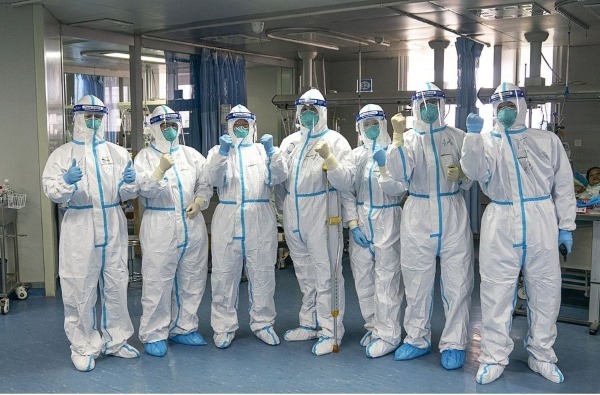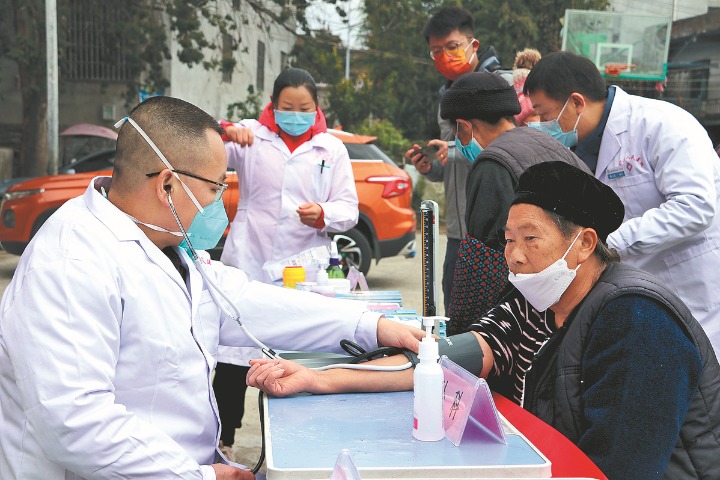How did China reduce the anxiety of frontline healthcare workers amid the COVID-19 outbreak?
It is important to note that the information provided in this Series is intended for your general knowledge only and is not a substitute for professional medical advice or treatment.

Healthcare workers are not only the backbone in the battle against COVID-19, but also play important roles in family life. Amid the COVID-19 outbreak, they could not take care of their families as they need to work in the frontline day and night. In light of this, active actions have been taken to provide multi-faceted support for the healthcare workers.
First, family members of healthcare workers showed full understanding and support. After the outbreak, medical workers worked overtime and even could not go home. Their family members not only assumed all family obligations, like raising children, supporting the elderly, and doing daily housework, but also provided comfort to relieve their psychological pressure. For example, a husband in Guangyuan city, Sichuan province, called out to his nurse wife during her departure to Wuhan, the epicenter of the outbreak in China, "Come back safely, I will do all the housework for the whole year!", showing his care and full support.
Second, the central government issued policies to require governments at all levels to care for the frontline healthcare workers. On February 5, the Joint Prevention and Control Mechanism of the State Council issued a Notice on Providing Full Protection and Care to Frontline Medical Workers and Their Families, requiring governments at all levels to take measures to support medical staff in living, mental health, humane care, safety and work subsidies.
In addition, all sectors of society provided support to medical workers and their families through various ways. For example, The All-China Women's Federation calls on women's federations at all levels to deliver food, provide psychological counseling services, support children's education, and provide housekeeping services to frontline medical staff's families. In response to the urgent needs of female medical staff, women's federations also urgently raised sanitary products such as sanitary napkins and relief pants, and promoted the inclusion of physiological and sanitary products in the list of epidemic prevention supplies to address the practical difficulties of female medical staff. Some places, like Heilongjiang province and Fujian province, established a "one-to-one" liaison system between communities and medical workers' families. The community neighborhood committee fully understood the family situation of each frontline medical staff, and provided follow-up protection to families with elderly parents and young children. The Beijing Municipal Education Commission also requires childcare institutions to provide childcare services for families of medical staff who have difficulties.
Reference:
https://www.sohu.com/a/378534351_120054832
Author: Dong Dandan,Center for International Knowledge on Development
Please feel free to contact us by sending your questions to question@chinadaily.com.cn or commenting on China Daily app. We will ask experts to answer them.














